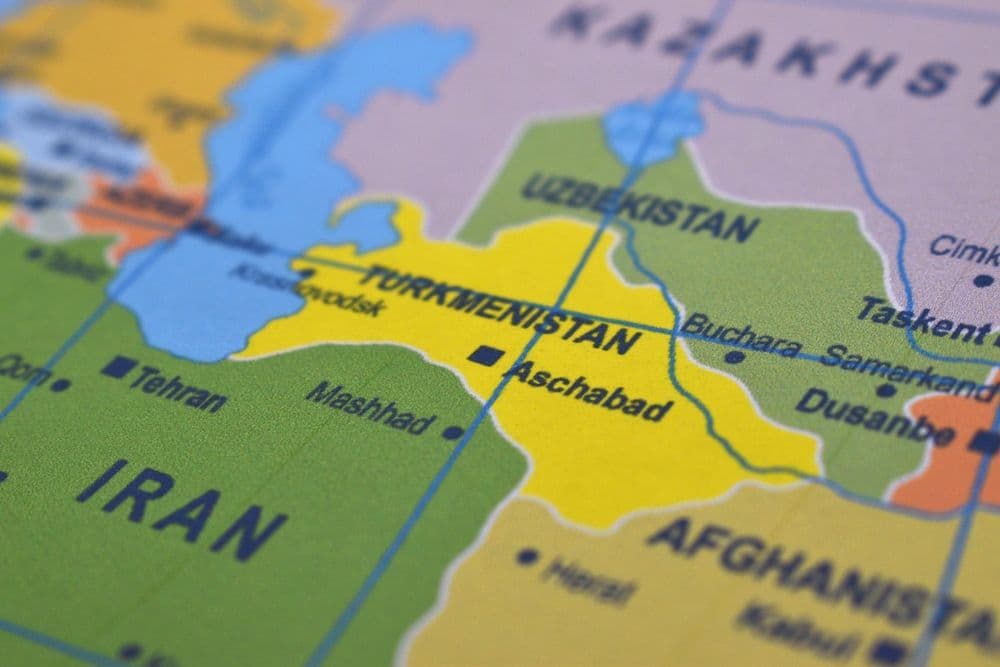Turkmenistan has signed sweeping legislation legalizing cryptocurrency mining and exchanges, while neighboring Uzbekistan moves forward with plans to recognize stablecoins as legal payment instruments, marking a significant shift in Central Asia's approach to digital assets.
President Serdar Berdymukhamedov signed Turkmenistan's virtual assets law on Thursday, establishing a comprehensive regulatory framework that will take effect on January 1, 2026.
The legislation represents the country's first formal attempt to regulate digital assets, positioning the energy-rich nation to potentially leverage its status as holder of the world's fourth-largest natural gas reserves to attract cryptocurrency mining operations.
Uzbekistan, meanwhile, is preparing to implement a regulatory sandbox that will enable stablecoins to function as official payment methods starting January 1, 2026.
President Shavkat Mirziyoyev signed the "On Measures for the Further Development of Financial Technologies" law on November 27, creating a framework for blockchain-based payment systems and tokenized securities.
What Happened
Turkmenistan's law establishes mandatory registration requirements for cryptocurrency miners and licensing procedures for exchanges through the Central Bank. Both individual entrepreneurs and legal entities can mine digital currencies, though covert mining operations using unauthorized equipment are strictly prohibited. Cryptocurrency exchanges must implement know-your-customer procedures and anti-money laundering protocols before opening crypto wallets for clients.
The legislation categorizes digital assets into backed and unbacked types while explicitly stating that cryptocurrencies are not recognized as legal tender, currency, or securities within Turkmenistan. The government bears no responsibility for the depreciation or loss of virtual assets, according to the law.
Advertising rules require clear risk warnings about potential total loss of funds and prohibit portraying cryptocurrency as an easy path to wealth. Marketing materials cannot feature minors or make promises of guaranteed profits. Companies in the cryptocurrency sector are banned from using "Turkmenistan," "Turkmen," or state-related terminology in their branding.
In Uzbekistan, the new framework enables the National Agency for Perspective Projects to oversee pilot projects for stablecoin-based payment systems operating on distributed ledger technology. Starting next year, Uzbekistan-based entities will be permitted to issue tokenized shares and bonds, with a dedicated trading platform to be established on licensed stock exchanges.
The Central Asian nation has already launched the HUMO token, a government bond-backed digital asset registered in the Unified Electronic Register of Crypto-Assets maintained by the National Agency for Prospective Projects. The token, issued by HUMO Digital and overseen by Asterium crypto depository, serves over 35 million cardholders through the national payment system.
Also read: KuCoin Secures Austria MiCA License, Gains Access to 29 European Markets
Why It Matters
These regulatory developments signal Central Asia's emergence as a significant player in global cryptocurrency adoption. The region's strategic positioning between Europe and Asia, combined with abundant energy resources and relatively progressive regulatory approaches, creates favorable conditions for digital asset growth.
Turkmenistan's diversification strategy reflects broader economic priorities. The country has traditionally relied heavily on natural gas exports to China, but government officials indicate the new law will "help attract investment and stimulate digitalization." The licensing framework provides legal clarity that was previously absent, moving cryptocurrency activities from a regulatory gray zone into formal oversight.
Kyrgyzstan has already established itself as a regional leader by launching a national stablecoin on BNB Chain in partnership with Binance. The KGST token, pegged 1:1 to the Kyrgyzstani som, operates alongside plans for a central bank digital currency and a national cryptocurrency reserve that includes BNB tokens.
Uzbekistan's approach to stablecoin regulation differs from traditional cryptocurrency frameworks by potentially enabling digital assets to function within payment systems while maintaining strict government oversight. The regulatory sandbox model allows authorities to test blockchain applications before wider implementation, similar to approaches adopted by more developed financial markets.
From January 2024, illegal acquisition, sale, or exchange of cryptocurrencies in Uzbekistan will carry fines and prison sentences, reflecting the government's intent to channel cryptocurrency activity through licensed providers rather than ban it outright.
Kazakhstan has also advanced its digital asset regulations, creating what analysts describe as the most mature cryptocurrency framework in the region. The country's Financial Monitoring Agency took down 130 crypto platforms involved in money laundering schemes this year while simultaneously piloting a central bank digital currency and backing a state-linked stablecoin.
The coordinated regulatory evolution across Central Asia suggests the region is positioning itself as a potential alternative hub for cryptocurrency operations, particularly as other jurisdictions implement more restrictive frameworks or maintain uncertain legal status for digital assets.
Read next: BitMEX Co-Founder Arthur Hayes Predicts Crypto Perpetuals Will Kill Traditional Stock Exchanges



